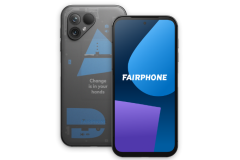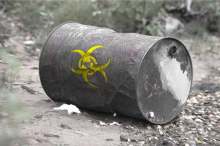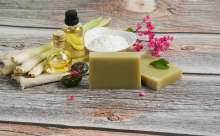Our shopping guides also give 'Best Buy' brands and recommended brands, from clothing to bank accounts to laptops.
But if you want to research a brand for yourself, here are some top tips for finding some genuinely ethical brands and avoiding greenwash.
How to check if a brand is ethical
If you want to check if a brand is ethical, there are a number of critical questions that can be useful to ask. The most ethical brands will have lots of detail about what they’re doing differently on their website.
1. Does the brand have a clear target to reduce its carbon footprint? What steps will it take to cut emissions?
Lots of brands have set a deadline to become carbon neutral. You may want to check what concrete steps they’ve said they’ll take to get there.
Any plan should focus on the core of their business model. Lots of companies will talk about getting employees to cycle to work while ignoring the emissions from all the thousands of products they actually sell.
We’d also recommend looking out for companies who say they’re buying carbon offsets: offsets are an easy way for companies to balance their emissions budgets, but they don’t work.
2. How is it treating its workers?
Some companies have thousands of workers in offices, factories and fields worldwide. Many of these workers will be in the company’s supply chains, rather than directly employed by them. Unfortunately, companies often do not adequately protect these workers.
Check what policies companies have for those in their supply chains.
Do they ensure:
- workers are being paid a living wage?
- working in safe conditions?
- have their right to unionise respected?
As a general rule of thumb, the more you can find out about a company’s supply chain from its website, the better. It’s a good sign if you can find out which country – or even which factory – products were made in, as well as statements on how they ensure those workers’ rights.
3. Does the company use animal products? Does it respect animal welfare?
There are a growing number of entirely vegan brands out there who avoid using any animal products. You can often find out if a brand is vegan in its FAQs - or by emailing them to ask.
Unfortunately, some vegan brands are owned by companies that use vast amounts of meat and dairy in other products or test on animals.
Our guides always list fully vegan companies and vegan brands.
4. Does it have any certifications?
Certifications are an excellent way to be confident that a company meets higher standards.
Most certifications focus on one area, whether ensuring a fair price for farmers like Fairtrade or avoiding animal testing like Leaping Bunny. Fairtrade, organic, Leaping Bunny and Vegan Society are all leading certifications in their fields.
It’s a great sign if a company has more than one of these certifications or has them across all items on their website.
If you don’t recognise the certification, you may want to check out its credentials. Some large companies like Sainsbury’s supermarket or Cadbury-owner Mondelez have introduced their own certifications. These often have lower standards than independent ones and essentially mean that the company is policing itself.
Check out our articles on certification schemes or ethical labelling for different industries:
There are other company wide standards or certifications to look for including the Fair Tax Mark and B Corporation status.
5. How well does it do in Ethical Consumer’s ratings?
Finding an all-round ethical brand can require a lot of research. We do this work for you. We provide an easy-to-understand ethical rating out of 100 that reflects all these questions and more.
We also benchmark companies within their market – so that you can see how, for example, Apple and Lenovo compare.
We also look at areas that are difficult to research as consumers. For example, we examine a company’s structure and policies to understand how likely they are to be avoiding tax.
We always look at a whole company group – rather than just one brand within it – so you can be sure your money isn’t going to an unethical owner.














